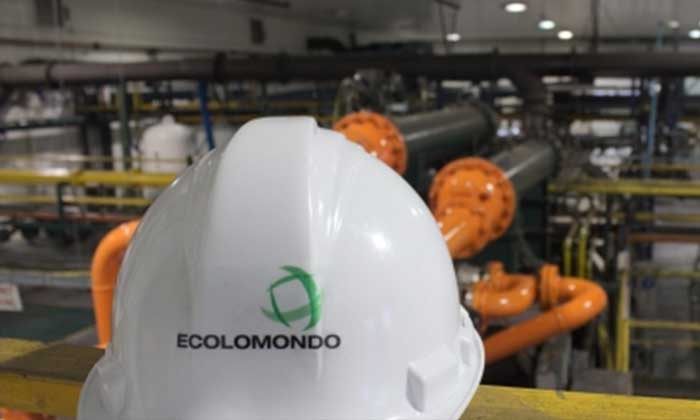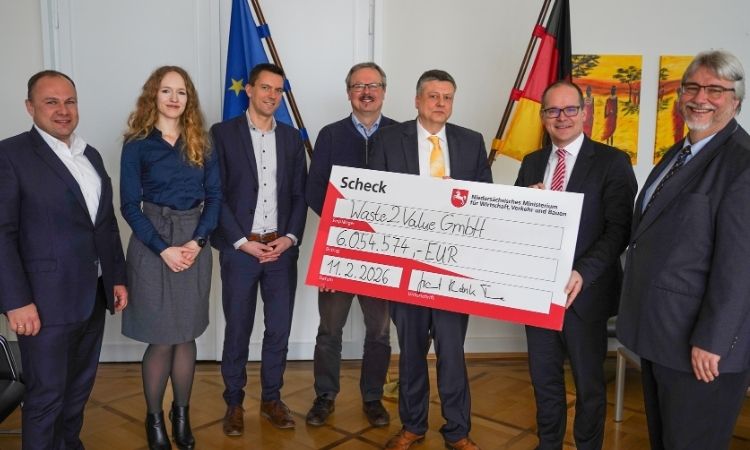Wastefront's Port of Sunderland plant exceeds expectations in CO2 reductions
According to Wastefront’s latest press release, the company will achieve significantly higher CO2 reductions than anticipated, following an updated Life Cycle Assessment (LCA) by independent expert DNV.
Wastefront’s Port of Sunderland plant was already considered a climate milestone for handling end-of-life tyres (ELTs), a significantly under-reported source of pollution. Following DNV’s new assessment – covering construction, operation, and decommissioning – the plant’s environmental benefits are now even more pronounced than before. The top-line environmental improvements include:
LCA Update: The increased size of the Port of Sunderland plant and optimisation of configuration will result in a higher reduction of emissions – approximately 2.7mn metric ton (mt) of CO2 emissions over the plant’s operational lifespan. This equates to approximately 1.07 mt of CO2 per mt of ELTs. Wastefront’s plant in Sunderland, which will serve as a Blueprint for future plants, once operational, will handle the safe and environmentally-conscious disposal of 83,000 mt of ELTs per year.
Carbon Yield Impact: The Carbon Yield quantifies the environmental impact of an investment in terms of emissions avoided per annum, demonstrating how Wastefront’s blueprint will have a major impact on global efforts to cut emissions.The ratio of total investment per plant, for CO2 avoided, is approximately 50$/mt CO2. This low value means that investing in a Wastefront plant is a highly cost-efficient way to reduce CO2 emissions.
Counterfactual Scenarios: The approach adopted by Wastefront includes considering counterfactual scenarios (what would happen if the company did not exist). In the UK market, where ELTs are often incinerated or exported abroad, Wastefront’s global plans will have a significant climate impact that reverses an increasingly damaging trend. In 2022, 395,000 mt of ELTs (80% of the total number of ELTs generated) were exported from the UK to overseas destinations. ELTs across Europe continue to rise as well as the amount of ELTs in the US that are either landfilled or unaccounted for. In addition, many applications previously accepted for their positive effect on CO2 emission, such as ELTs crumbs into playgrounds, are being banned by more and more countries for generating harmful contaminants.
Wastefront CEO Vianney Vales commented:
“End-of-life tyres are a major source of global CO2 emissions and the problem is only getting worse, with previously accepted solutions being banned because of hazards, beyond emissions. The Wastefront Blueprint tackles this head-on by providing a sustainable solution that chemically recycles ELTs. Investing in Wastefront is a highly cost-effective way to reduce emissions of CO2 and the release of other pollutants, while creating value with our recycled products.”
Wastefront finds its work growing in relevancy at a critical time for heavy industry. Impact fund Summa Equity has forecast that a €1.5tn circular market will exist in Europe alone by 2040, with companies like Wastefront being central to actualising a circular future. Moreover, with its future-proof technology and modular processes, Wastefront can scale at the speed and scope required to meet the demand for their solution.
The company has enjoyed positive momentum throughout 2023. In Q3 Wastefront announced a strategic partnership with VTTI (Vitol, IFM Investors and ADNOC): i) investment of up to $43mn ii) an agreement to reach a final investment decision for eight global sites within seven years. Later that same quarter, Wastefront received news from the Environment Agency that the necessary permit had been granted for the Port of Sunderland site, thus clearing the way for an operational plant by 2026.
Press release by Wastefront.
Weibold is an international consulting company specializing exclusively in end-of-life tire recycling and pyrolysis. Since 1999, we have helped companies grow and build profitable businesses.









